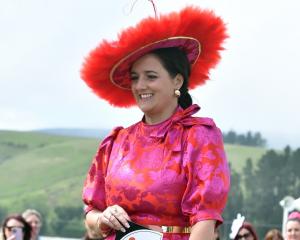

As he prepared to show at London fashion week after a 12-year absence, he said he believed the suit would be seen as less an everyday work uniform and more as special occasion wear — but with many of those going into an office just two or three days a week making more of an effort and opting to dress more formally.
"During the pandemic, we had two years of re-evaluating everything, and our attitudes to the way we dress changed," Boateng said. Hybrid working had informed the way we approached suiting up, he added — this time last year, searches for suits had fallen by 34% and there was a rise in smart-casual workwear informed by virtual office meetings.

Despite his absence from London Fashion Week in recent years — he’s been concentrating on other projects, including designing uniforms for British Airways staff — Boateng remains relevant. The conversation about the death of the suit is current as ever, and diversity and structural racism remain hot topics among the fashion set. His show was an immersive celebration of black excellence in the wake of the Black Lives Matter movement, with nods to his Ghanaian heritage.
"The George Floyd experience brought a sadness to my heart and made me think that there’s so much more to be done," he said. "Even though there has been change, there also has to be an acceptance of change. Sometimes, it’s easier to push it away and say ‘can we move on?’. But it still needs to be talked about."

"In the late 1990s, Cool Britannia was reaching a global audience and Savile Row was ripe for being reinvented," Prof Andrew Groves, director of the Westminster Menswear Archive, said.
"Like Tommy Nutter in the 1970s, Ozwald Boateng, along with Richard James, Timothy Everest and Richard Anderson, made it cool to hang out on Savile Row."
But he faced discrimination, too. In his biographical film, A Man’s Story, Boateng said: "You weren’t accepted because you are black," encapsulating the uneasy tensions that existed. "I came to Savile Row to evolve tradition," he says now. "I remember Andre Leon Talley saying, ‘you’re not a tailor, you’re a couturier’. What I was doing was taking traditional values and finding ways of modernising them. That created a uniqueness."
— Guardian News and Media












